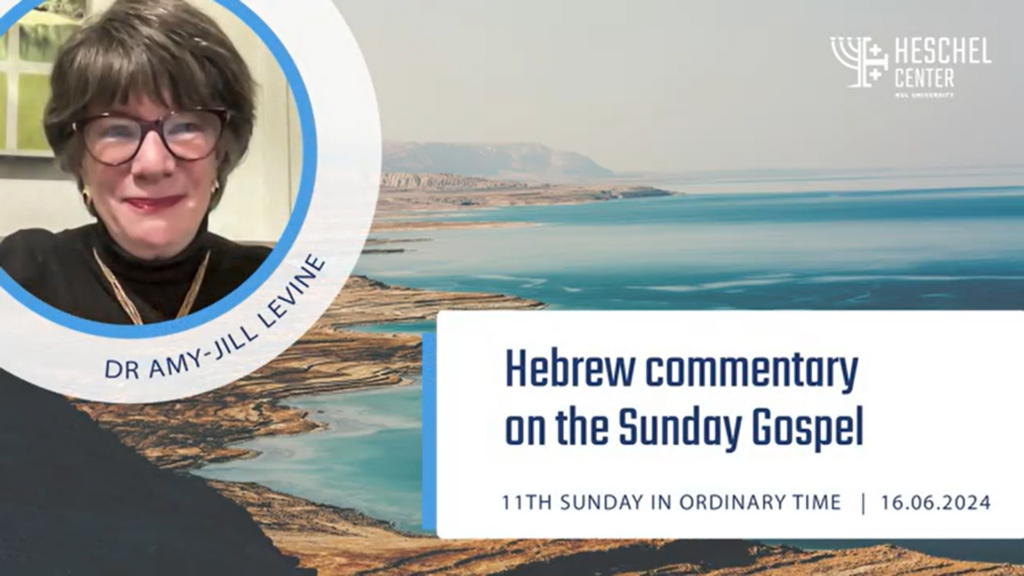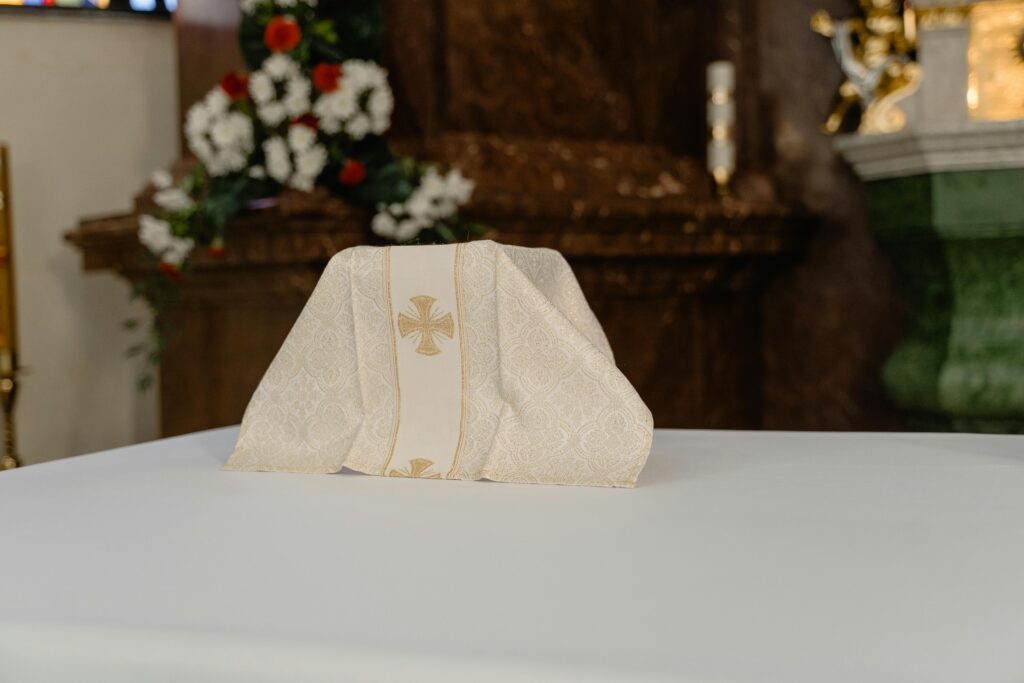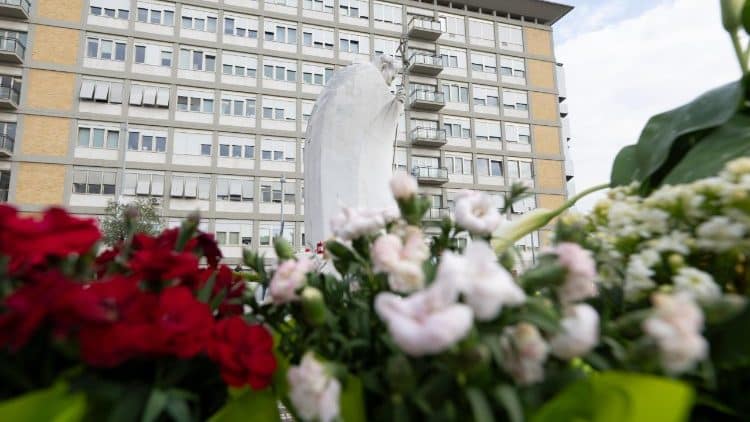Parable – a combination of two images
The word “parable” comes from two Greek words. Para-as in parallel means to put two things side by side; “balo” means to cast or throw. Thus, parables throw together two images,” points out Dr. Amy-Jill Levine, professor of New Testament and Jewish Studies and the first Jewish woman to teach New Testament at the Pontifical […]

The word “parable” comes from two Greek words. Para—as in parallel—means to put two things side by side; balo means to cast or throw. Thus, parables throw together two images. In exploring possible connections between the parable and our lives, we discover new things both about the Kingdom of G-d and about ourselves.
The two parables in Mark 4.26-34 concern our interaction with nature. In the first, the parable of the “seed growing secretly,” a person scatters seed. He has already prepared the soil, removed the weeds, provided water and light and fertilizer. The seed then grows on its own. One possible meaning: we need not micromanage our lives, or our families, or our communities; we provide the solid grounding, but at some point we need to encourage their freedom.
The second parable moves from the expected process of growth to something entirely unexpected. Jesus describes how the tiny mustard seed (technically it is not the smallest seed; orchid seeds are smaller, but Jesus was a builder, not a farmer), “springs up and becomes the largest of plants….” Even more amazing, that plant “puts forth large branches, so that the birds of the sky can dwell in its shade.”
Mustard seeds do not yield giant plants. Mustard plants grow to about five feet, and birds do not nest in their branches.
Jesus takes us from the natural to the visionary from what we can see to what we can only imagine. This is what parables do: they help us think about the world in new ways.
Some readers, noting the contrast between small seed and large tree, find an image of the growth of the church or of their own faith. Jesus will speak of faith “the size of a mustard seed” that can move mountains (Matt. 17:20; see also Luke 17:6), and so the parable becomes a message not only of encouragement, but also of empowerment.
Because mustard seeds grow not into giant trees but rather into small bushes, other interpreters find messages about resurrection when our bodies become perfect and glorious.
We might conclude that the birds represent the gentile nations who flock to the limbs of the church, an image related to Ezekiel 31.6, and so find a gospel of universalism.
Or, more practically, we might note that mustard has medicinal and culinary properties and so recognize that even weeds can be beneficial.
Sometimes, however, interpreters see what is not there. Some Christian interpreters suggest that mustard seeds are “unclean” and that the parable does away with Jewish dietary laws. This is an incorrect reading.
A few years ago I wrote, with Rabbi Sandy Eisenberg Sasso, a children’s book called The Marvelous Mustard Seed. It starts with a child planting a mustard seed in an empty garden. The seed, so very tiny, isn’t anything yet. But then the rain falls and the sun shines, and things begin to happen in the earth. The seed changes: the plant grows, and grows, and grows, until it becomes, as Luke 13.19 describes, a giant tree. A mustard tree? Amazing! Birds nesting there? Surprising!
Sandy and I conclude: “The Kingdom of God is like a mustard seed in the garden, right outside our windows, growing from itsy-bitsy, teensy-weensy to colossal, from impossible to see to unable to miss. It helps us to imagine what can be… but isn’t yet.”
The lectionary concludes by noting that Jesus explained everything to his disciples. But most parables come without explanations. They are open invitations to explore their meanings and so find our own understandings of God’s Kingdom and of our place in it.
About the author:
Amy-Jill Levine is University Professor of New Testament and Jewish Studies Emerita and Mary Jane Werthan Professor of Jewish Studies Emerita at Vanderbilt University. She is also Rabbi Stanley M. Kessler Distinguished Professor of New Testament and Jewish Studies, Hartford International University for Religion and Peace. In the spring of 2019, she became the first Jew to teach a course on the New Testament at the Pontifical Biblical Institute in Rome; in 2021, she was elected a member of the American Academy of Arts and Sciences.
Related

Pope Francis’ 12-Year Pontificate: Transformation and Challenges for the Church
Javier Ferrer García
13 March, 2025
4 min

End Times, Intrahistorical Hope, and Final Victory
Albert Cortina
12 March, 2025
11 min

An Encounter with Christ: Spiritual Preparation for Mass
P Angel Espinosa de los Monteros
11 March, 2025
3 min

Pope at Gemelli: He continues the Lenten Spiritual Exercises from the hospital
Exaudi Staff
10 March, 2025
1 min
 (EN)
(EN)
 (ES)
(ES)
 (IT)
(IT)

